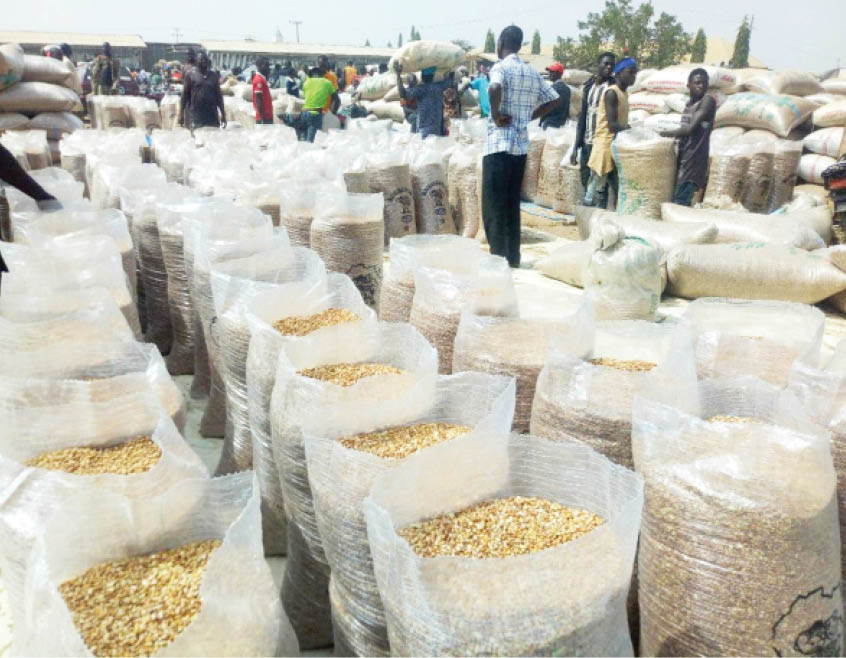The primary responsibility of every government is to provide the needed physical and social security (food security inclusive) for its citizenry. The stability of the political system depends on how the common man can have access to his/her primary needs such as food.
Food security is fundamental to the stability of every nation. History has it that several governments/regimes were brought down to their knees due to their inability to secure and provide food security to their citizenry.
For the common man on the streets, having access to food is primary, and of which failure to do so can lead to so many social vices resulting to governments spending more on security systems/apparatus across the board.
Several scholars and politicians have been calling the attention of the administration of President Bola Ahmed Tinubu to, as a matter of urgency, deploy the needed resources (financial and enabling policies) towards agriculture-based economy.
Transforming the agricultural sector of the economy will for sure create a new dawn of financial activities for citizens at all levels. This will encourage other levels of government (state and local) to give special attention to the agricultural sector to serve as new source of revenue as well as reduce the dependence on allocations from the Federation Account (FAAC).
However, the cheapest and fastest route for successful implementation of food security policies in Nigeria is by having an operational commodity exchange (Commex). Commex is to serve as catalyst by proving an organised platform for trading with warehouse receipt document. The utilisation of trading documents eliminates the cost of moving the physical goods (farm produce) from one spot market to another. Transaction process (buying and selling) is instant, buyer will be debited and seller gets value with ease making the system transparent and reliable.
The transparency and reliability of transaction system within the commex operations will inspire business entities to venture into warehousing activities. Availability of warehousing operations will encourage farmers to produce more, since the fear of post-harvest loss is taken over by professionals (warehouse operators/insurance firms).
It has been a known fact that the major factor limiting farmers to produce maximally is the post-harvest loss fear attributed to lack of proper storage facilities to accommodate the excesses produced.
The United States Agency for International Development (USAID) has stated that about 50 per cent of fresh agricultural produce is lost at the post-harvest stage. Such losses are partly responsible for the rising food inflation in the country, which reached 40.01 per cent in March 2024.
With the existence of an operational commex, the process and funding for the food security operations will mainly be financed and shouldered by the private sector since it is a promising venture with a guaranteed Return on Investment (RoI).
Operational Commodity Exchange can serve as a catalyst for not only food security but to the economic, social and infrastructural developments of the country. Furthermore, the platform of the Commodity Exchange can be utilised to encourage farmers and investors to collectively join forces for more food production by transforming the traditional farming process to mechanised one. This transformation will have a positive impact on sustainable food security and wealth creation among the citizenry.
Other economic sectors the transformation will directly or in-directly develop are:
- Farmers/investors to produce/invest more based on assured returns;
- Farmers will be relieved from post-harvest exposure since the risk of storing their harvest is being handled by professionals (warehousing operators and insurance companies);
iii. With increase in activities at the floors of the exchange more transactions (buying/selling) will be formalised resulting to increase government earnings on tax;
- Increase in production from the agricultural sector (food security operations) will result to demand for more labour thereby engaging our teaming youths that are latent security threats our common peace;
- Reduction in security expenditure will give authorities the chance to channel such resources for other developmental projects;
- With the creation of jobs, wealth creation amongst citizens will as well be enhanced;
vii. Peace and stability within the country will encourage foreign investors to invest into the other sectors of the economy; and
viii. Will serve as catalyst for the governments (federal and states) to achieve the desired results of the Sustainable Development Goals (SDGs)
In conclusion, an operational Commodity Exchange is the secret behind the success route passed through by the developed nations as rightly shared by Chuck Kowalski thus:
“It’s unlikely that the United States of America (USA) would have experienced as much economic growth in the last 100 years as it has without them (Commodities Exchange)”- Chuck Kowalski: renowned Commodities and Futures Professional and President of Stoik Futures Inc. of the United States of America.
The above assertion can serve as a leaked secret of the developmental success recorded by the United States through the operations of commodities to the federal government to learn from in order to support and encourage the five registered commodity exchanges (NCX, Afex, LCFE, GCMX and Prime Commex) to be fully operational.
Aminu-Daneji, mcpn, mcban, fimc can be reached via [email protected]

 Join Daily Trust WhatsApp Community For Quick Access To News and Happenings Around You.
Join Daily Trust WhatsApp Community For Quick Access To News and Happenings Around You.

